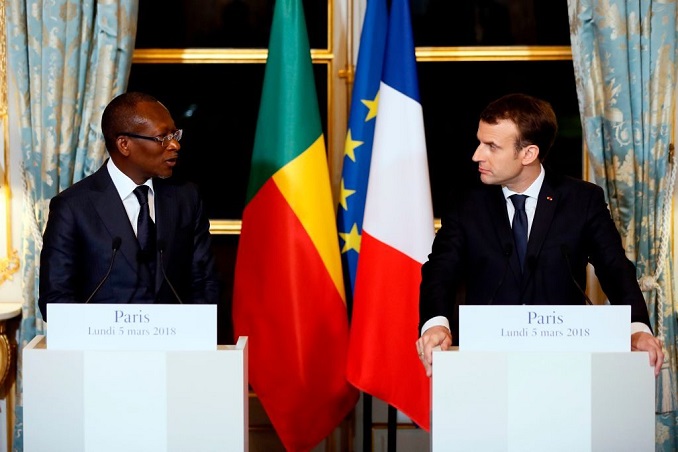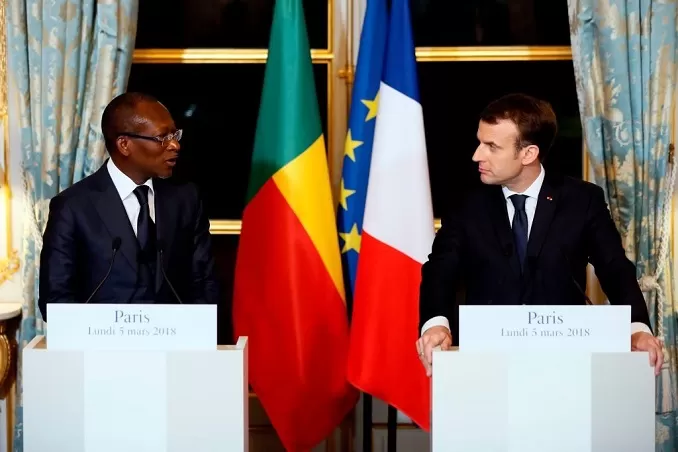

benin receives the treasures that france has surrendered
Last updated on November 12th, 2021 at 09:39 am
![]()
![]()
Hundreds of people gathered at Cotonou airport, Benin’s economic hub, to pay respect, dance, and celebrate the arrival of the plane bringing the royal treasures on Wednesday afternoon. I eventually persuaded myself that these artifacts had been restored to the country. I’m brought to tears by what you’ve written. ” The works will be transported by truck between the airport and the presidency, according to Ousmane Agbegbindin.”We can’t see the artifacts, but just knowing that our forefathers’ thrones, shoes, racks, and other belongings are in these trucks has an effect on me that I can’t explain.”
Many Beninese were waiting on the sidewalk, largely clothed in loincloths and traditional attire, to the sound of drums and trumpets. Martine Vignon Agoli-Agbo, a northern Benin resident, traveled more than 500 kilometers (310 miles) with her two daughters to see the event. We’ve been in Cotonou for 24 hours solely to see the arrival of these priceless items. It’s quite moving, “AFP quoted her as saying. This was a moment I didn’t want to be told about. And if my children are present, it is so that they can tell their own children one day. “
The repatriation of the Abomey palace relics, which include three totemic statues, comes as pressure mounts in Africa for Western countries to return colonial riches. The Quai Branly museum in Paris holds the majority of them, and it has launched an examination of its collection to identify works that some claim were acquired by violence or compulsion. Last year, French lawmakers passed legislation allowing Paris to return antiques to Benin and Senegal, both of which were once French colonies.
Talon has previously stated that Tuesday’s transfer was only the first step in a larger compensation plan. They will be shown in Benin at a number of locations, including an old Portuguese fort in Ouidah, while a museum in Abomey is being built. Experts believe that 85 to 90% of African cultural artifacts have been removed from the continent. Some were taken by colonial authorities, the military, or doctors and passed down to descendants, who donated them to museums across Europe and the United States.
Others, on the other hand, were given to missionaries, purchased by African art collectors at the turn of the century, or uncovered by scientific expeditions. According to a survey commissioned by Macron, there are around 90,000 African works in French museums, with 70,000 of them in the Quai Branly alone. African countries have also requested that missing valuables be returned to the United Kingdom, Belgium, the Netherlands, and Germany. Last month, Nigeria said that it had reached an agreement with Germany to return hundreds of so-called Benin Bronzes,
MultiChoice and NBCUniversal have given $145 million to support Showmax Africa. This money will help with running the business and…
The ongoing search for Free State police officers in Centurion resulted in the discovery of five dead bodies found in…
The Sistine Chapel will welcome Cardinal members in the forthcoming week to start electing succession candidates on May 7 for…
Namibia’s President, Netumbo Nandi-Ndaitwah, has removed Agriculture Minister Mac-Albert Hengari from his position. The decision came after serious allegations of…
Manchester United manager Ruben Amorim has confirmed that defender Diogo Dalot might miss the rest of the season due to…
Tanzanian President Samia Suluhu Hassan has praised Simba SC after the team made history by reaching the final of the…
This website uses cookies.